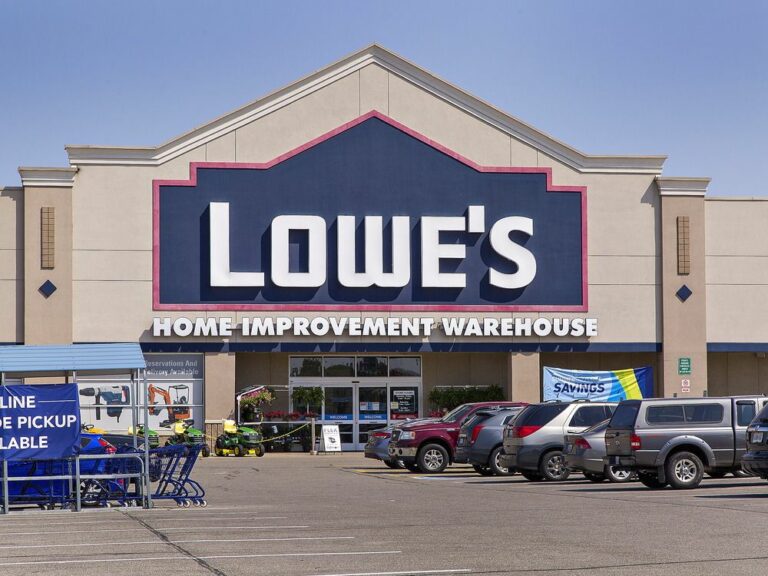What Is My Truck Worth By Vin: Unlocking Your Vehicle’s True Value
What Is My Truck Worth By Vin: Unlocking Your Vehicle’s True Value cars.truckstrend.com
In the dynamic world of vehicle transactions, whether you’re looking to sell, trade, insure, or simply understand the asset you own, a fundamental question often arises: "What is my truck worth?" While many factors contribute to a vehicle’s market value, there’s one alphanumeric key that holds more power and information than any other: the Vehicle Identification Number (VIN). Knowing "What Is My Truck Worth By VIN" isn’t just a convenient shortcut; it’s the most accurate and comprehensive way to assess a truck’s true value, providing an unvarnished look into its unique identity, specifications, and history. This detailed guide will explore how your VIN acts as the gateway to understanding your truck’s worth, empowering you with the knowledge to make informed decisions.
The Power of the VIN – More Than Just a Number
What Is My Truck Worth By Vin: Unlocking Your Vehicle’s True Value
At its core, a VIN is a 17-character alphanumeric code unique to every vehicle manufactured since 1981. Far from being a random sequence, each character within the VIN holds specific information, decoding the truck’s entire identity. It reveals:
- Manufacturer and Country of Origin: Where the truck was built.
- Vehicle Attributes: Such as the make, model, body type, engine type, and safety features.
- Model Year: The specific year the truck was manufactured.
- Assembly Plant: Where the truck rolled off the production line.
- Serial Number: The unique identifier for that specific vehicle.

This comprehensive data makes the VIN an indispensable tool for valuation. It moves beyond generic assumptions, providing precise details about your truck’s original configuration, which is the foundation upon which its current value is built. Without the VIN, any valuation is merely an educated guess based on broader categories; with it, you gain access to the granular data that defines your truck.
Why Knowing Your Truck’s VIN-Based Value Matters
Understanding your truck’s worth through its VIN offers a multitude of practical benefits, impacting various financial and transactional aspects of vehicle ownership:
- Selling Privately: Armed with an accurate VIN-based valuation, you can confidently set a competitive and fair asking price, attracting serious buyers and avoiding underpricing your asset.
- Trading In: When negotiating with dealerships, a precise understanding of your truck’s trade-in value, supported by VIN data, strengthens your position and ensures you receive a fair deal.
- Insurance Coverage: Insurers use VIN data to determine your truck’s replacement value, directly impacting your premiums and potential payouts in the event of an accident or theft. Knowing your truck’s value helps ensure adequate coverage.
- Financing and Refinancing: Lenders rely on accurate vehicle valuations, often tied to the VIN, to assess the collateral’s worth when approving loans or refinancing existing ones.
- Tax Purposes: For businesses or individuals tracking depreciation, a precise valuation aids in calculating tax write-offs or sales tax obligations.
- Informed Decision-Making: Even if you’re not immediately selling, knowing your truck’s current value allows for better financial planning and asset management.
How the VIN Informs Valuation – Key Factors
The VIN acts as a data key, unlocking crucial information that directly influences your truck’s market value:
-
Base Vehicle Information: The VIN definitively identifies the truck’s make, model, year, trim level, engine size, fuel type, and drivetrain (2WD, 4WD, AWD). These are the foundational elements of any valuation. A premium trim with a powerful engine will naturally command a higher base value than a stripped-down work truck.
-
Original Equipment and Factory-Installed Features: Beyond the basic trim, the VIN can often reveal specific factory-installed options and packages. This includes features like premium sound systems, navigation, sunroofs, specialized towing packages, off-road capabilities, advanced safety features, or luxury interiors. These additions significantly impact value, and the VIN ensures they are accurately accounted for.
-
Recalls and Safety Information: A VIN check through services like the National Highway Traffic Safety Administration (NHTSA) database will reveal any open recalls for your specific truck. While a recall doesn’t inherently decrease value, an unresolved recall can deter buyers and might need to be addressed before a sale.
-
Vehicle History Reports (VHRs): This is where the VIN truly shines in valuation. By inputting your VIN into services like CarFax or AutoCheck, you gain access to a comprehensive history report that details:
- Accident History: Major or minor collisions, often with details on damage severity.
- Salvage, Flood, or Rebuilt Titles: These significantly devalue a truck.
- Odometer Discrepancies: Flags any potential tampering.
- Service Records: Sometimes includes reported maintenance events.
- Number of Owners: Can indicate how well the vehicle has been cared for.
- Lien Status: Important for clear title transfers.
- Usage History: Whether it was a personal vehicle, rental, or fleet vehicle.
A clean VHR free of accidents, title issues, or major discrepancies can add significant value, while a problematic history report will inevitably lower the truck’s worth.
Practical Steps to Get Your Truck’s VIN-Based Valuation
Determining your truck’s worth using its VIN is a straightforward process that combines data retrieval with market awareness:
-
Locate Your VIN: Your truck’s VIN can be found in several places:
- On the driver’s side dashboard, visible through the windshield.
- On the sticker located on the driver’s side door jamb.
- On your truck’s registration card.
- On your insurance policy documents.
-
Obtain a Vehicle History Report (VHR): This is a crucial step. While not free, investing in a CarFax or AutoCheck report is highly recommended. These reports compile data from various sources (DMVs, repair shops, insurance companies) linked directly to your VIN, providing the most comprehensive history available. Free VIN checks exist for recalls (NHTSA) but won’t provide a full history.
-
Utilize Online Valuation Tools: Reputable platforms like Kelley Blue Book (KBB), Edmunds, and NADAguides offer excellent valuation services.
- Input Your VIN: Many of these sites allow you to directly input your VIN, which automatically populates the truck’s make, model, year, and often its original features.
- Accurately Describe Condition and Mileage: After the VIN populates the basics, you’ll be prompted to provide current mileage and assess the truck’s condition (excellent, good, fair, poor). Be honest and objective in your assessment, as this significantly impacts the final valuation. Consider interior cleanliness, exterior blemishes, tire wear, and mechanical soundness.
- Add Specific Features and Modifications: Ensure you select all factory-installed options and any significant aftermarket additions that might add value (e.g., lift kits, premium bed liners, performance upgrades – though some modifications can also detract value).
-
Consider Local Market Factors: While online tools provide a national average, local supply and demand can influence prices. A 4×4 truck might command a higher premium in a snowy region compared to a desert climate. Check local dealership inventories and private sale listings for similar trucks to get a feel for regional pricing trends.
-
Professional Appraisal (Optional): For highly customized, classic, or very high-value trucks, a professional appraisal from a certified appraiser can provide the most detailed and legally recognized valuation, often required for insurance or estate purposes.
Beyond the VIN – Other Influencers on Value
While the VIN provides the bedrock of your truck’s value, other critical factors contribute to its final market price:
- Current Condition: This is arguably the most significant non-VIN factor. A truck with pristine paint, a spotless interior, new tires, and perfectly maintained mechanicals will always be worth more than a identical model with dents, tears, and deferred maintenance, regardless of VIN data.
- Mileage: Lower mileage generally correlates with higher value, as it suggests less wear and tear. However, high mileage on a well-maintained truck can still hold decent value.
- Maintenance Records: A comprehensive service history demonstrates diligent care and can significantly boost buyer confidence, adding perceived value.
- Aftermarket Modifications: Some modifications (e.g., professional lift kits, quality bed covers) can add value for specific buyers, while others (e.g., extreme performance mods, custom paint jobs) might narrow your potential buyer pool or even detract from value.
- Color and Popularity: Certain colors or body styles might be more desirable in the current market, leading to quicker sales and potentially higher prices.
Challenges and Considerations
While powerful, relying solely on VIN data for valuation can have nuances:
- Incomplete Digital Records: Older trucks (pre-2000s) might have less comprehensive digital histories available through VHRs compared to newer models.
- Reporting Discrepancies: Not all accidents or repairs are reported to the databases that VHRs pull from, meaning a "clean" report isn’t always 100% exhaustive.
- Subjectivity of Condition: The online valuation tools rely on your subjective assessment of "good" or "fair" condition, which might differ from a buyer’s or appraiser’s view.
- Market Volatility: Vehicle values can fluctuate based on economic conditions, fuel prices, and new model releases. A valuation is a snapshot in time.
Price Table: Illustrative VIN-Based Valuation Factors
Below is a hypothetical table illustrating how various VIN-derived and related factors influence a truck’s estimated value range. This is not a real-time price list but demonstrates the impact of different attributes.
| VIN-Derived Factor / Attribute | Description | Impact on Value | Hypothetical Value Range (e.g., 2018 Ford F-150 Lariat 4×4) |
|---|---|---|---|
| Base Vehicle (VIN Decoded) | Make, Model, Year, Trim (e.g., F-150 Lariat 4×4) | Foundational Value | $28,000 – $35,000 (Base for average condition/mileage) |
| Engine Type (VIN Decoded) | 3.5L EcoBoost V6 vs. 2.7L EcoBoost V6 | More powerful/desirable engines increase value | +$1,000 – $2,500 |
| Factory Options (VIN Decoded) | Technology Package, Moonroof, Max Tow Package | Significant additions increase desirability and value | +$1,500 – $4,000 |
| Vehicle History (VHR – VIN Specific) | Clean Title, No Accidents | Maximizes value | No deduction, often commands higher end of range |
| Minor Accident (Cosmetic Repair) | Slight to moderate deduction | -$1,000 – $3,000 | |
| Major Accident (Structural Damage) | Significant deduction, harder to sell | -$5,000 – $10,000+ | |
| Salvage/Rebuilt Title | Drastic deduction, limited market | -$10,000 – $15,000+ (or more) | |
| Mileage | Low (e.g., <50k miles) | Higher value, less wear | +$2,000 – $5,000 |
| Average (e.g., 50k-100k miles) | Standard value | No significant adjustment | |
| High (e.g., >100k miles) | Lower value, perceived wear | -$1,500 – $4,000 | |
| Current Condition | Excellent (Pristine) | Commands premium | +$2,000 – $4,000 |
| Good (Minor wear) | Standard | No adjustment | |
| Fair (Visible wear, minor issues) | Moderate deduction | -$1,000 – $3,000 | |
| Poor (Major issues, needs significant work) | Substantial deduction | -$4,000 – $8,000+ | |
| Maintenance Records | Complete & Documented | Adds confidence, slight value boost | +$500 – $1,000 |
| Regional Demand | High demand for specific truck/features in area | Can increase value | Up to +$1,000 – $2,000 |
Frequently Asked Questions (FAQ)
Q: Can I get a free VIN valuation for my truck?
A: While you can get free basic VIN decodes (which tell you make, model, year, etc.) and check for open recalls on sites like NHTSA.gov, a comprehensive valuation that includes detailed vehicle history reports (CarFax, AutoCheck) usually costs money. Free online valuation tools like KBB or Edmunds allow you to input your VIN, but the final value will still depend on your honest assessment of condition and mileage.
Q: How accurate are online VIN valuations?
A: Online tools that use VIN data are an excellent starting point and provide a highly accurate estimate based on market data. However, their accuracy hinges on your honest and objective input regarding the truck’s current condition, mileage, and specific features. A professional appraisal might be more accurate for unique or high-value trucks.
Q: Does a VIN check show maintenance records?
A: Vehicle History Reports (VHRs) generated from your VIN can sometimes include maintenance records if the work was performed by dealerships or repair shops that report to the databases used by CarFax or AutoCheck. However, not all service is reported, so a lack of records on a VHR doesn’t necessarily mean the truck wasn’t maintained.
Q: What if my VIN doesn’t show any accidents, but I know it was in one?
A: VHRs rely on reported data. If an accident was minor, not reported to police, not filed with an insurance company, or repaired without involving a reporting entity, it might not appear on the VIN history report. This highlights the importance of a thorough physical inspection by a mechanic when buying a used truck.
Q: Can a VIN change or be modified?
A: No, a VIN is permanently assigned to a vehicle at the time of manufacture and cannot be legally changed or modified. Any attempt to alter a VIN is illegal and often indicates a stolen vehicle or fraud.
Q: Is it safe to share my VIN with potential buyers or online services?
A: Yes, it is generally safe to share your VIN. It’s publicly visible on your dashboard and often on sales listings. While it provides a lot of information about the vehicle, it doesn’t directly link to your personal identity or financial information. However, always be cautious about sharing other personal details in conjunction with your VIN.
Concluding Summary
Understanding "What Is My Truck Worth By VIN" is not just about getting a number; it’s about gaining a comprehensive understanding of your vehicle as an asset. The VIN acts as the ultimate identifier, unlocking a wealth of information about your truck’s original specifications and its entire documented history. By combining the power of the VIN with thorough vehicle history reports, accurate self-assessment of condition and mileage, and an awareness of local market dynamics, you empower yourself with unparalleled insight. Whether you’re preparing for a sale, negotiating a trade, or simply curious, leveraging your VIN ensures you make the most informed and confident decisions regarding your valuable truck.





